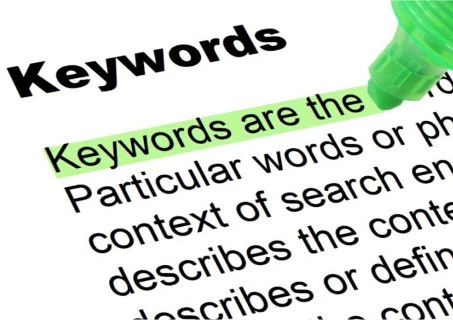- Resources /
- Digital Marketing
- / Common Keyword Myths
Common Keyword Myths

Keywords are the words that tell a search engine what your page is about and that correspond with user searches. Google and other search engines have always kept their algorithms secret. What we know is mostly what we've learned through trial and error. Google often changes the way they measure a website's worth as people catch on to what works and as the search engine itself gets smarter about what a searcher wants. As a result, a lot of outmoded and just plain wrong ideas tend to take stubborn hold of webmasters and SEO experts. This is important, since improper keyword usage, such as keyword stuffing or squeezing in awkward keywords can hurt your standing.
Keyword density is super important.
Chances are, you've read somewhere that you should aim for a keyword density of around three to four percent for the best results on Google. But, analysts have found that pages that rank well use keyword densities between 5 and 20 percent. There does not seem to be a pattern. Placement of keywords matter more. As long as they are in your title and your H1 header, you've probably hit the density you need.
Keywords need to appear exactly in the text.
Ever read a blog post and see an awkward phrase like "hire a plumber St. Louis" right in the middle of a sentence? This was written by an SEO writer laboring under the mistaken idea that keywords need to appear all in a row for Google to understand them. However, Google is perfectly happy with helper words like in, at, the and by in between those important words. Your readers will be, too, since this can allow them to take in information without being jarred out of the reading experience.
Keywords don't matter anymore.
Last year's Hummingbird update at Google changed the way the search engine worked entirely. Going forward, search engine results are based far more on searcher intent than the exact words that were entered. For instance, in the past "fishing equipment" might get you results relating to types of fishing equipment, famous makers of fishing equipment and maybe a few places locally selling equipment. Now, Google uses profile information about searchers to provide what they are probably looking for; in this case, the searcher most likely wants to find stores selling fishing equipment in the area. So, while search no longer relies entirely on keywords to produce results, those keywords are still necessary. It's important to tell the search engine what your page is about, but also important to be useful to the surfer who eventually lands there.
Search engines and tools like keywords will continue to evolve as technology gets smarter. To continue to have good placement in the search engine results pages, you'll need to stay up to date on what works best. Lost? Contact us for a consultation to learn what you should be doing for search engine success.
<< Back to list page Learn More






